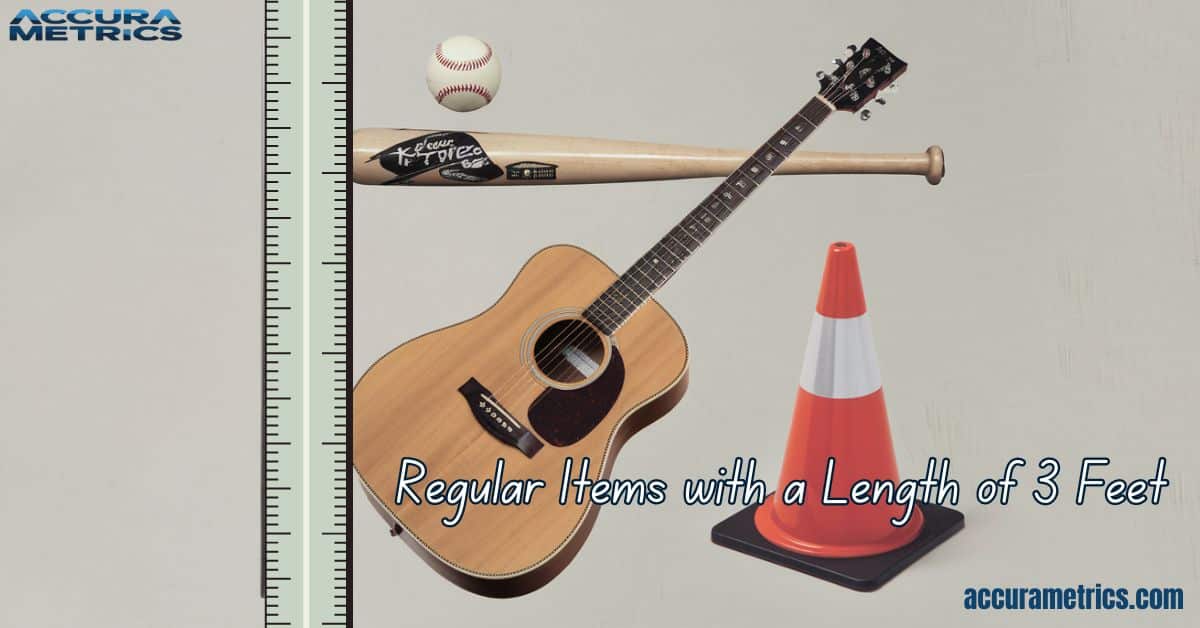In our daily lives, we are surrounded by objects of various sizes, but have you ever stopped to consider just how many common items measure exactly 3 feet in length? This seemingly arbitrary measurement turns out to be surprisingly prevalent in our world.
From the tools we use to the furniture we sit on, three-foot objects are everywhere. In this comprehensive guide, we’ll explore ten everyday items that measure up to this precise length, and dive into the fascinating world of measurements and their impact on our lives.
Understanding 3 Feet long: More Than Just a Yardstick
Before we delve into our list of three-foot objects, let’s take a moment to understand what exactly 3 feet long means in terms of measurement. A foot is a unit of length in the imperial and US customary systems, equal to 12 inches or 0.3048 meters. Therefore, three feet is equivalent to 36 inches or approximately 0.9144 meters.
To put this into perspective, three feet is about:
- The average height of a 3-year-old child
- The length of a newborn baby beluga whale
- The diameter of a standard pizza
Interestingly, the measurement of a foot has a rich history dating back to ancient civilizations. The Romans, for instance, used the foot as a unit of measurement, although it was slightly shorter than our modern foot. The standardization of the foot as we know it today occurred in 1959 when it was officially defined in terms of the meter.
Visualizing 3 Feet long in Relation to Human Height
To better understand the three-foot measurement, it’s helpful to compare it to the average human height. For most adults, three feet reaches somewhere between the hip and waist. Here’s a quick breakdown:
| Height Group | Three Feet Reaches |
| Adult Males (5’9″ average) | Just above hip level |
| Adult Females (5’4″ average) | Around waist level |
| Children (ages 7-8) | Approximately shoulder height |
This comparison helps us visualize three feet in a more relatable way. It’s particularly useful when considering things like furniture dimensions or the height of countertops.
Practical Applications of Knowing 3 Feet Long
Understanding three-foot lengths can be incredibly useful in various situations:
- Interior Design: Knowing standard furniture and appliance dimensions helps in space planning.
- DIY Projects: Many home improvement tasks involve measuring and cutting materials to specific lengths.
- Sports: In games like baseball or golf, understanding equipment lengths can improve performance.
- Child Development: Pediatric growth charts often use three-foot increments as milestones.
Now that we’ve established a solid understanding of what three feet means, let’s explore our list of everyday objects that measure up to this length.
10 Common Items That Measure Up to 3 Feet long
Explore everyday objects that measure this length, highlighting their prevalence and significance in our daily lives.
1. The Classic Yardstick: Not Just for Classrooms
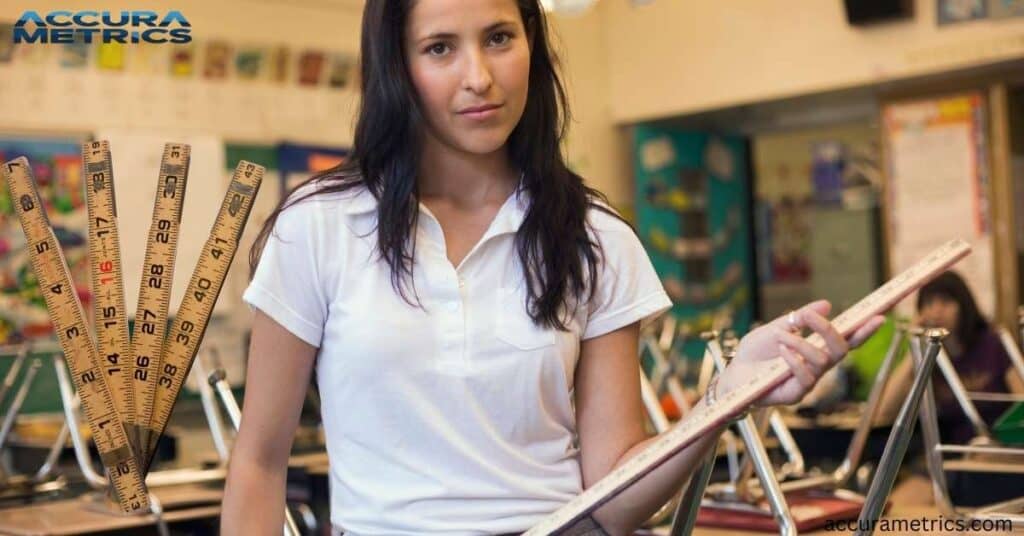
The yardstick is perhaps the most obvious three-foot object, as it’s designed specifically to measure this length. But did you know that the yardstick has a fascinating history?
“Give them an inch and they’ll take a yard.” – English Proverb
Originally, the yard was defined as the distance from King Henry I’s nose to the thumb of his outstretched arm. Over time, it evolved into a standardized measurement tool used in classrooms, workshops, and homes worldwide.
Modern uses of yardsticks include:
- Teaching measurement concepts in schools
- Hanging pictures and aligning wall decorations
- Checking package dimensions for shipping
- Creating straight lines for painting or wallpapering
DIY Tip: Use a yardstick to create a rustic wall hanging or a unique measuring height chart for kids.
2. Baseball Bats: Swinging into Action
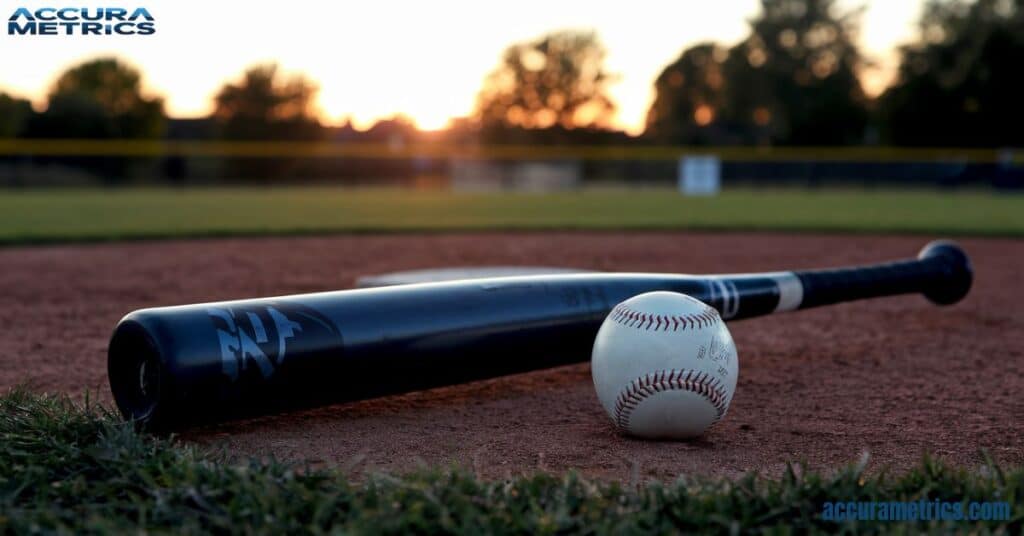
Baseball bats are another common item that often measures exactly three feet in length. The official rules of Major League Baseball state that bats can be no longer than 42 inches, but most professional players prefer bats between 32 and 34 inches long.
Interesting fact: The longest verified home run in professional baseball history was hit by Joey Meyer in 1987, traveling an estimated 582 feet. While the exact length of Meyer’s bat isn’t known, it likely fell within the standard three-foot range.
Baseball bat lengths and their uses:
| Bat Length | Typical User |
| 24″-26″ | Youth players (5-7 years old) |
| 27″-29″ | Youth players (8-10 years old) |
| 30″-32″ | Youth players (11-13 years old) |
| 33″-34″ | High school and adult players |
| 35″-36″ | Professional players |
3. Acoustic Guitars: Strumming to the Perfect Length
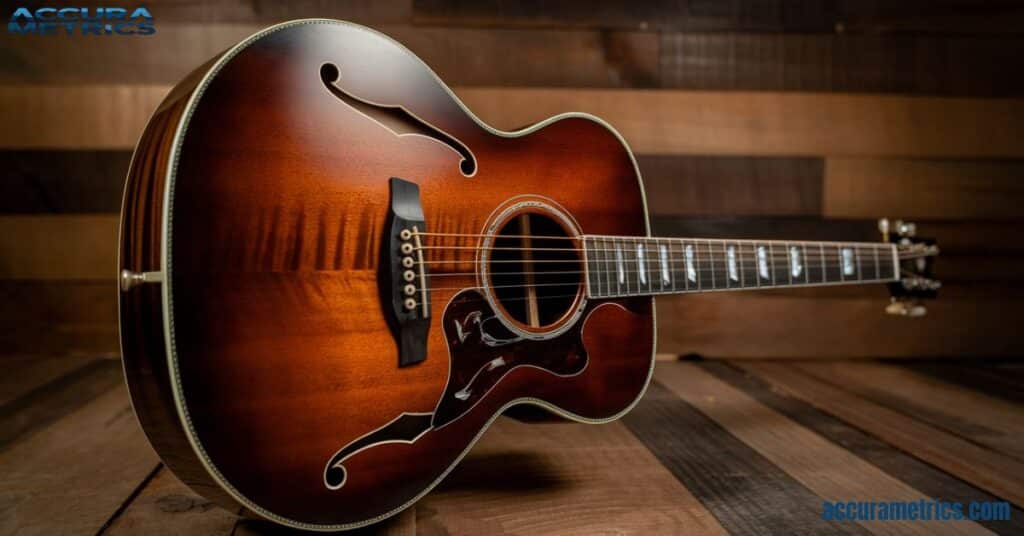
Many acoustic guitars measure almost exactly three feet from the tip of the headstock to the end of the body. This length has been found to produce optimal sound quality and playability for most adults.
Why 3 feet is ideal for sound production:
- Resonance: The three-foot length allows for proper string tension and vibration.
- Harmonics: This length produces a balanced range of frequencies.
- Comfort: It fits comfortably in the lap of most adult players.
Notable musicians who prefer guitars around the three-foot mark include Eric Clapton, Taylor Swift, and Ed Sheeran.
4. Traffic Cones: Safety in Threes

Traffic cones, those ubiquitous orange markers of road work and hazards, often stand at exactly three feet tall. This height is chosen for several reasons:
- Visibility: Tall enough to be seen over most car hoods
- Stability: Short enough to resist tipping in wind or when brushed by vehicles
- Portability: Light enough to be easily moved by workers
Did you know? Some creative individuals have found unusual uses for traffic cones beyond road work. They’ve been used as makeshift speakers, Halloween costumes, and even as planters in urban gardening projects.
5. Unicycles: Balancing Act on a 3-Foot Wheel
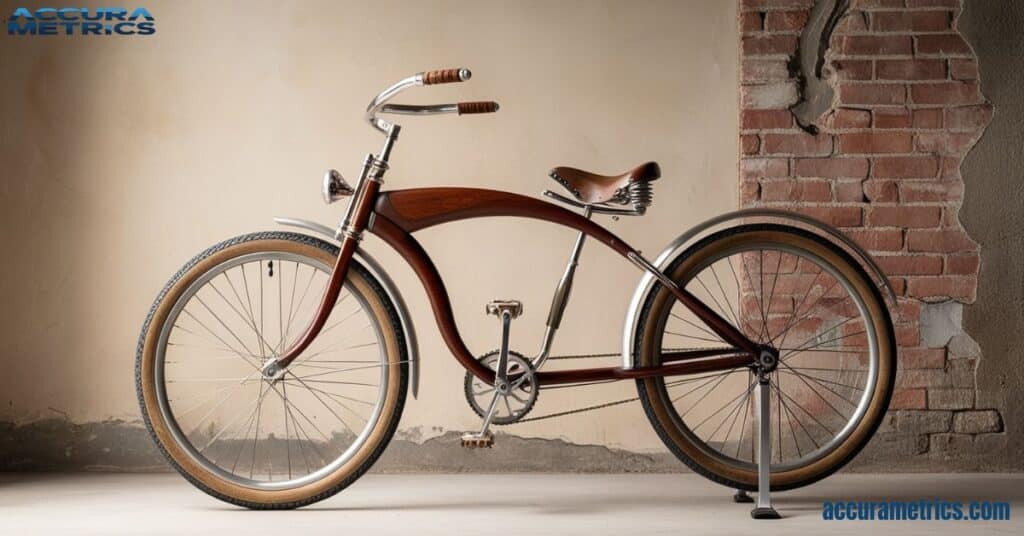
Standard adult unicycles typically feature a wheel that’s very close to three feet in diameter. This size offers the perfect balance between speed and control for most riders.
The physics behind the optimal wheel size:
- Larger wheels (like three-foot ones) maintain momentum better
- They also provide a smoother ride over small obstacles
- The three-foot diameter aligns well with the average adult’s leg length for efficient pedaling
Interestingly, unicycling has seen a resurgence as an urban transport trend in some cities. Its compact size and zero emissions make it an eco-friendly alternative to cars for short trips.
Explore further 12 Common Things That Are 4 Inches Long
6. Crutches: Walking Tall
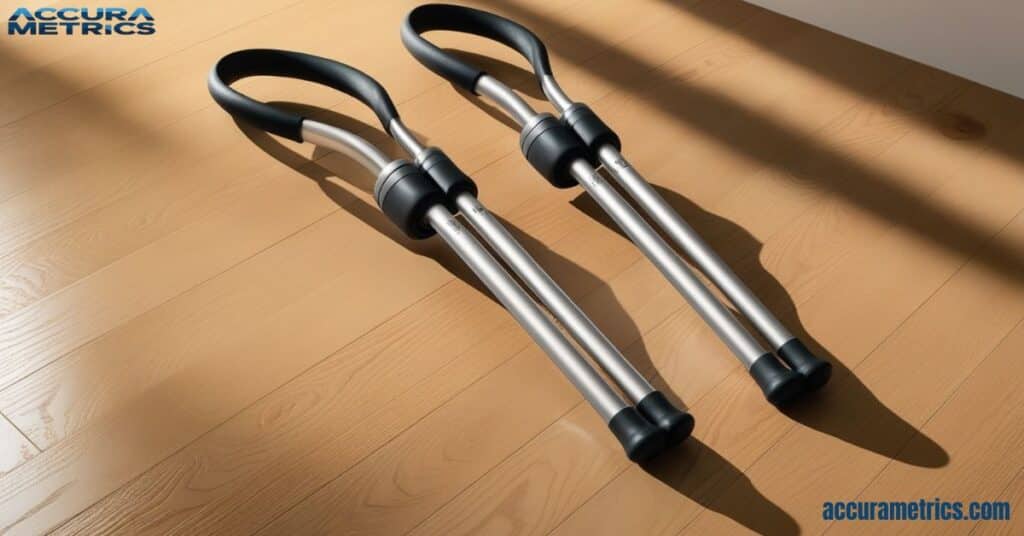
Standard underarm crutches are typically adjusted to around three feet in length for average-height adults. This length ensures proper support and posture while walking.
Ergonomics of crutch design:
- The three-foot length allows for about 30 degrees of elbow bend when standing
- This position minimizes strain on the shoulders and wrists
- It also provides optimal balance and control during movement
Recent innovations in mobility aids include forearm crutches and hands-free crutches, which offer alternatives to the traditional underarm design while still maintaining similar lengths.
7. Pool Cues: Precision in Pocket
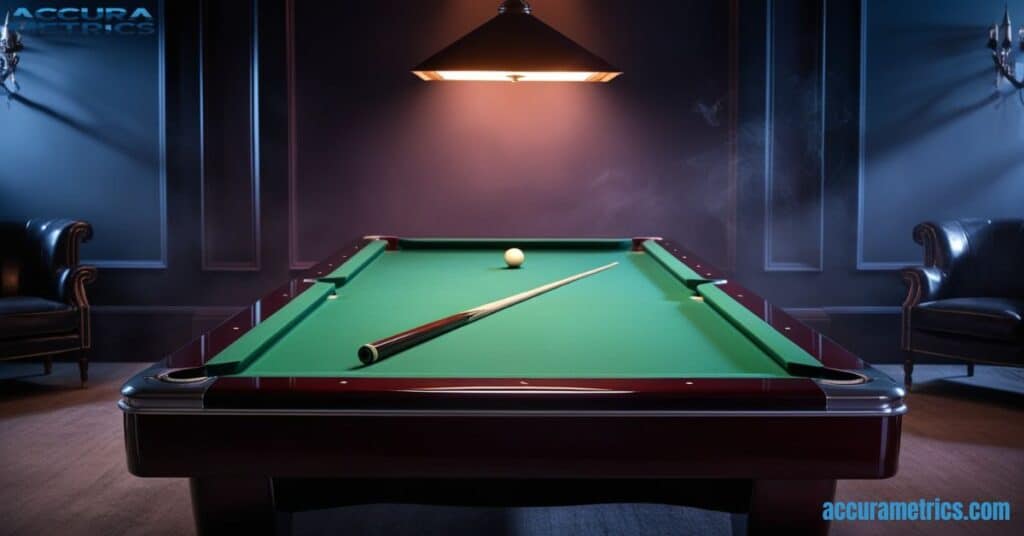
Standard pool cues measure between 57 and 58 inches in length – just shy of three feet. This length has been found to provide the optimal balance between power and control in gameplay.
The science of cue length and game strategy:
- Longer cues (close to three feet) allow for a smoother stroke
- They provide better control for shots requiring finesse
- The length helps players maintain a comfortable stance at the table
World recor sd: The longest continuous pool playing record stands at 125 hours and 1 minute, set by Jaws Justo of the Philippines in 2014. Imagine how many three-foot strokes that required!
8. Toddler Beds: Growing Up in 3-Foot Increments
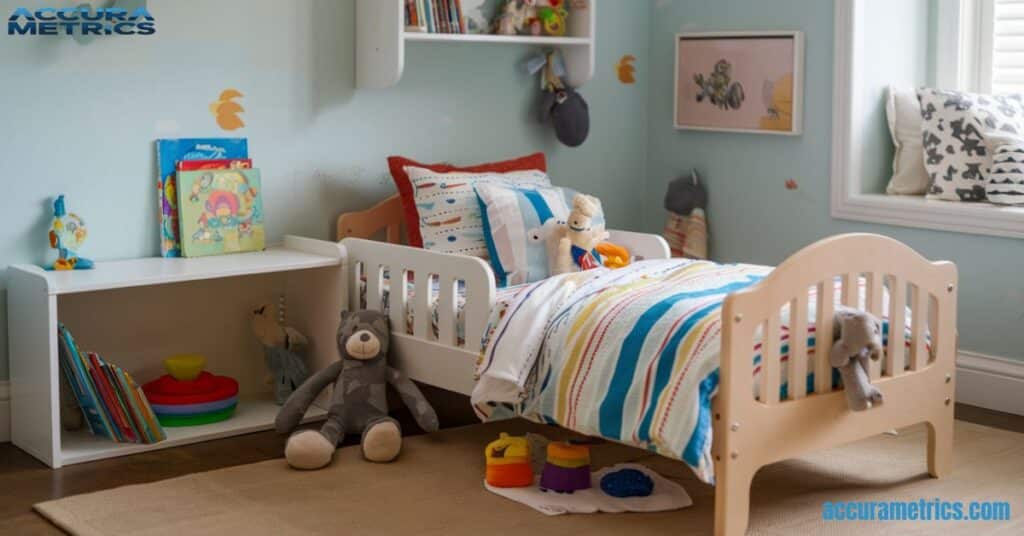
Many toddler beds are designed to be about three feet wide, providing a cozy sleeping space for young children transitioning from cribs to “big kid” beds.
Child development and sleep space needs:
- The three-foot width mimics the familiar dimensions of a crib
- It provides enough space for comfort without being overwhelming
- This size fits well in most children’s bedrooms
Creative toddler bed designs often incorporate the three-foot dimension into fun shapes like race cars, castles, or spaceships, making the transition to a new bed an exciting adventure for little ones.
9. Surfboards: Riding the Waves at 3 Feet

While surfboards come in various sizes, many popular shortboards measure right around three feet in length. These boards are favored by experienced surfers for their maneuverability and performance in smaller waves.
Types of 3-foot boards and their purposes:
- Fish: Wide and flat, good for small waves
- Groveler: Designed for weak, mushy waves
- High-performance shortboard: For experienced surfers in good conditions
Environmental impact: The surfboard industry has been making strides in sustainability, with many manufacturers now offering eco-friendly options made from recycled materials or sustainable resources.
10. Didgeridoos: Ancient Sounds, Modern Measures
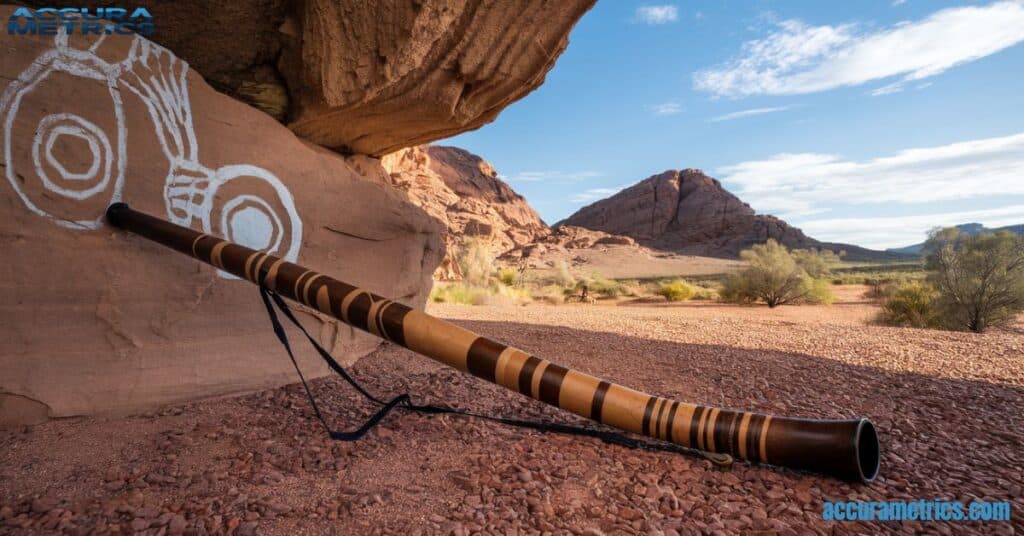
The didgeridoo, an ancient Aboriginal Australian wind instrument, often measures close to three feet in length. This length produces the instrument’s characteristic deep, resonant tone.
- Traditionally made from eucalyptus branches hollowed out by termites
- Used in ceremonies and storytelling for thousands of years
- Now popular worldwide as a meditation and music therapy tool
How length affects sound: The three-foot length creates a fundamental frequency around 65 Hz, which is close to the musical note C2 – a deep, grounding tone.
DIY Corner: Measuring and Creating Your Own 3 Foot Tools
Now that we’ve explored various three-foot objects, why not try creating some of your own? Here are a few simple projects using three-foot materials:
- Custom measuring stick: Decorate a three-foot piece of wood with personalized markings.
- Garden trellis: Use three-foot lengths of bamboo to create a plant support.
- Toddler busy board: Mount various locks, switches, and textures on a three-foot board for sensory play.
Tips for accurate measurements without specialized tools:
- Use your own body: For many adults, the distance from the tip of the nose to the end of the outstretched arm is close to three feet.
- Paper method: A standard sheet of paper is 11 inches long. Lay out 3 and 3/11 sheets to measure three feet.
- Step it out: An average adult stride is about 2.5 feet. Take just over one step to estimate three feet.
The Science of Measurement: Why 3 Feet Matters
Understanding standardized measurements like three feet is crucial in many fields:
- Manufacturing: Ensures parts fit together correctly across different producers
- Construction: Allows for precise building plans and execution
- Retail: Helps in designing store layouts and product displays
In nature, we can find many examples of plants and animals that fit the three-foot bill:
- The average height of a emperor penguin
- The length of a young alligator
- The diameter of a giant sequoia tree seedling
Find out more 8 Things That Are 500 Feet Long or Big
Case Study: Rethinking the Three-Foot Kitchen Counter
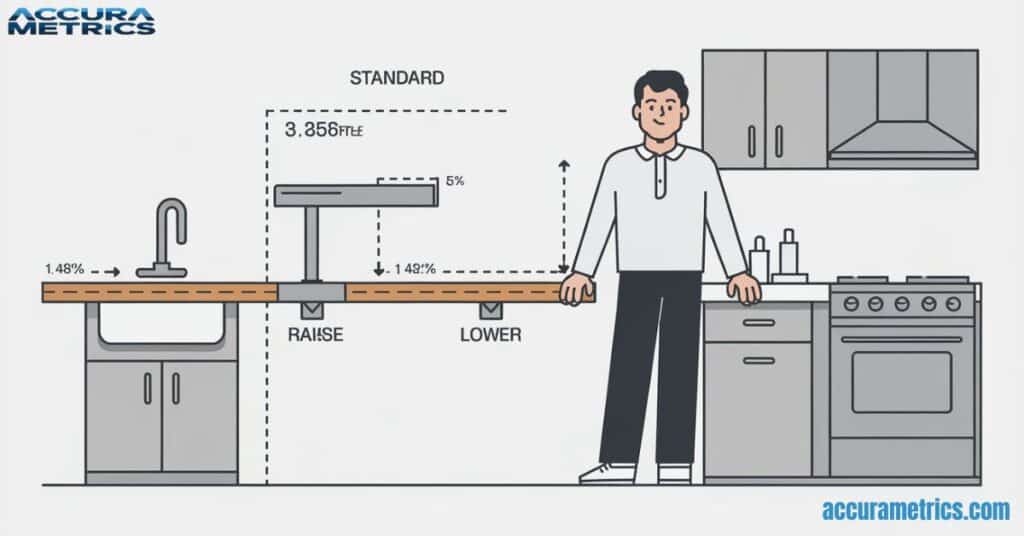
Background: In 2020, KitchenPro, a home appliance manufacturer, noticed increasing customer complaints about discomfort while using their products. They questioned whether the standard three-foot (36-inch) countertop height was suitable for all users.
Objective: Investigate the ergonomics of three-foot countertops and develop solutions for improved user comfort.
Methodology:
- Surveyed 1,000 customers about kitchen usage and comfort.
- Conducted ergonomic studies with 100 participants using adjustable countertops.
Findings:
- 65% of users under 5’4″ reported discomfort with 36-inch countertops.
- Users over 6′ often experienced lower back strain from bending.
- Optimal countertop height varied based on specific kitchen tasks.
Solution: Kitchen Pro developed the “FlexiCounter” system:
- Electronically adjustable countertops (32-40 inch range).
- Enhanced product descriptions highlighting ergonomic benefits.
- In-store displays allowing customers to test different counter heights.
Results:
- 30% increase in customer satisfaction scores.
- 25% reduction in reported back pain among users.
- 15% increase in sales of KitchenPro’s customizable kitchen systems.
This case study shows how challenging standard measurements like the three-foot countertop can lead to innovative, user-friendly product designs.
FAQs
Q: Why are so many things three feet long?
A: Three feet is a sweet spot for human use. It’s about half an adult’s height, making it comfortable for many household items and tools. Plus, it’s been a standard measure (the yard) for centuries, influencing design and manufacturing.
Q: How can I measure three feet without a ruler?
A: Try these quick methods:
- Use your arm span: Fingertip to opposite shoulder is often close to 3 feet.
- Paper trick: 3 and 3/11 sheets of standard paper equal 3 feet.
- Step it out: An adult stride is about 2.5 feet, so just over one step works.
Q: How does this relate to modern tech?
A: Understanding common measurements helps in:
- Designing AI tools to extract product dimensions from web pages.
- Creating Chrome extensions to convert measurements automatically.
- Using data analysis to inform product design and manufacturing.
Conclusion: Seeing the World in 3 Feet Increments
As we have discovered, three-foot lengths are all around us, from the tools we use to the instruments we play. By understanding this common measurement, we can gain a new appreciation for the design and functionality of everyday objects.
So the next time you encounter a three-foot object, remember: it’s not just a simple measurement, but a gateway to understanding the intricate relationships between design, function, and the human experience in our precisely measured world.
“Test Your 3 feet Knowledge” Quiz
To wrap up our exploration of three-foot objects, let’s test your knowledge with a quick quiz:
- Which of these is closest to three feet in length? a) A newborn giraffe b) A standard door width c) The width of a twin bed d) The height of a kitchen counter
- How many inches are in three feet? a) 30 b) 33 c) 36 d) 39
- Which sport uses equipment that’s often exactly three feet long? a) Tennis b) Golf c) Cricket d) Polo
Answers: 1. d, 2. c, 3. c (a cricket stump is exactly three feet tall)
Check out 15 Common Things That Are 7 Inches Long

My name is Linda, and I am an experienced blogger with a passion for precision and craftsmanship. With years of expertise, I contribute to Accura Matrics, bringing a wealth of knowledge and a keen eye for detail. My insightful articles and expert tips are designed to help readers achieve excellence in their measurements and dimensions projects, offering valuable guidance in the pursuit of accurate and thoughtful design.

